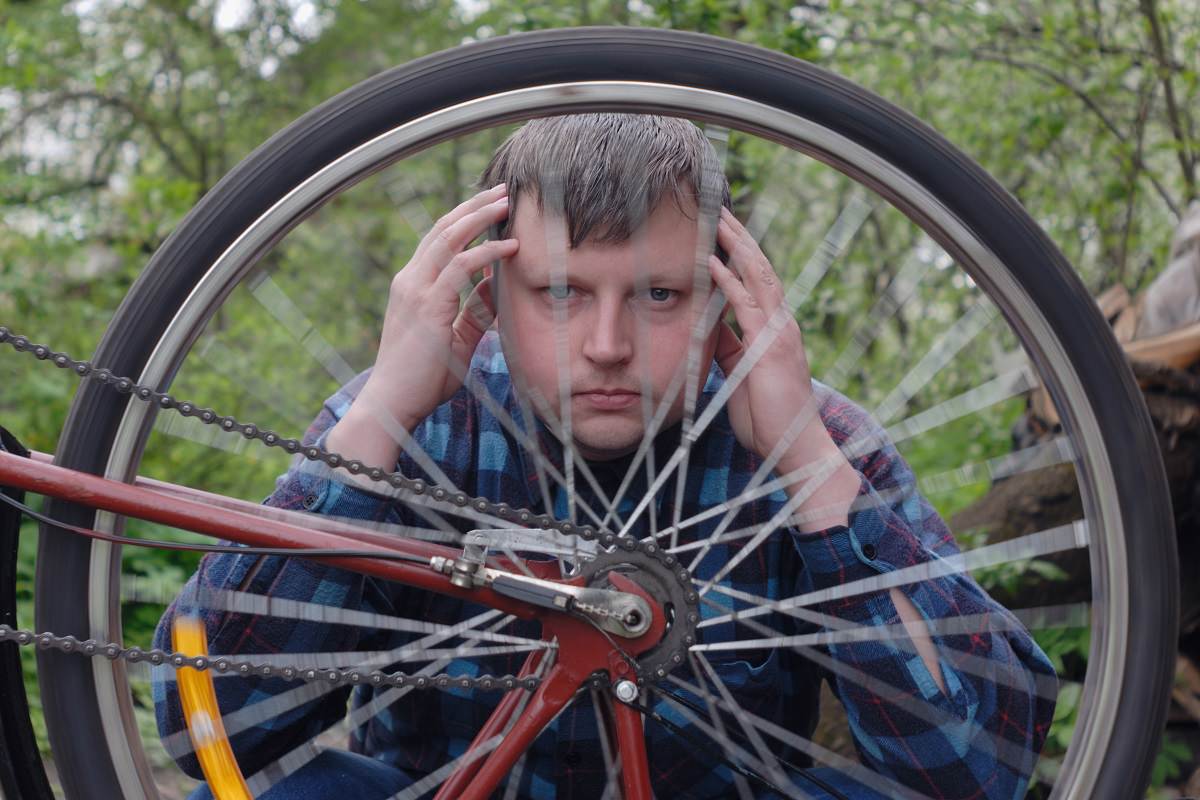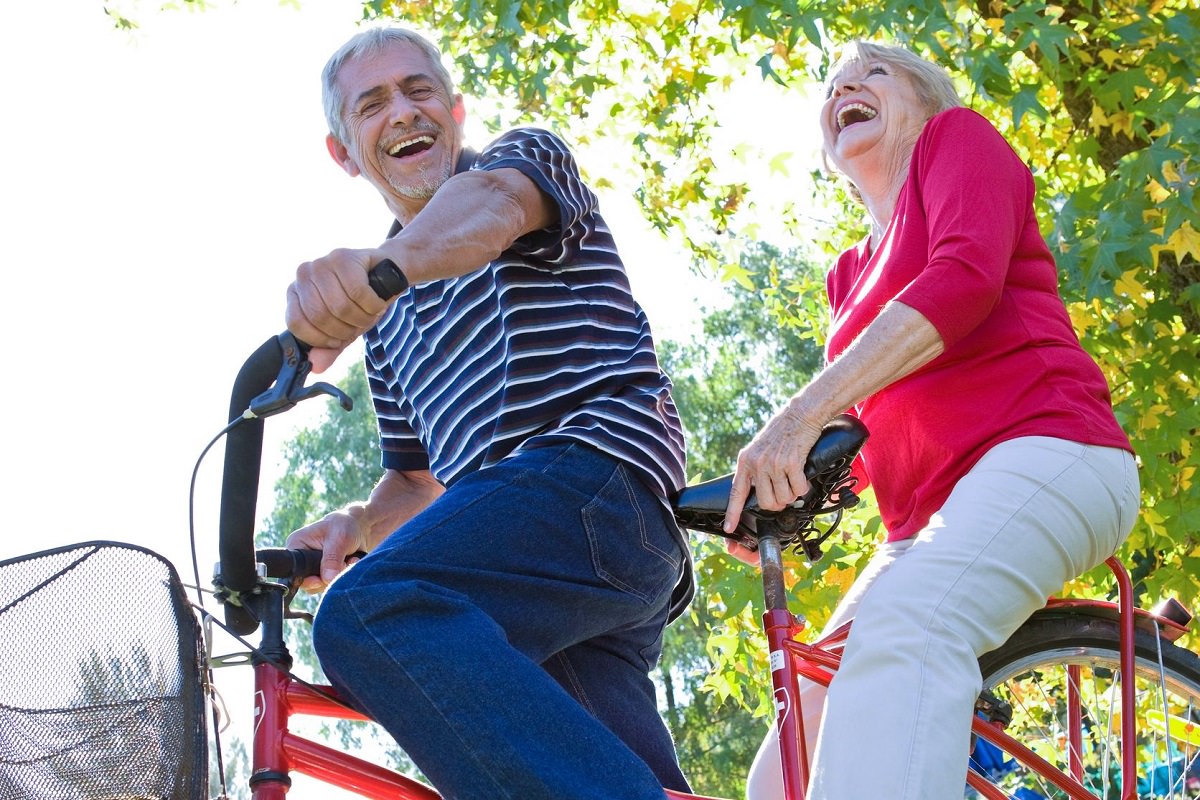Life has become a relentless race now, but cycling allows for the simple pleasure that can sweep us off the daily hurdles. Cycling is more than a sport, it has always been more than that, some have realized it sooner than others but this is the kind of sport that can change our lives for the better. It doesn’t just change the landscape that you are traversing, but also the inner landscapes of your mind.
As we embark on this life-changing journey, we will explore the intricate relationship between the pedal strokes and your mental well-being. You will get to know the actual sports psychology behind cycling, just hold on to your seats.
Whenever we talk about mental health and how to improve it, cycling comes up frequently. Cycling is and can be available to most of us, think of it as a cost-effective but useful mode of therapy. The aerobic, rhythmic, and soothing nature of cycling has brain-boosting benefits.
The 7 Major Health Benefits Of Cycling
Mental health is one of the topics that is discussed very often these days, some consider it taboo while some consider it very essential. Apart from being physically fit, we should also strive for optimal mental health. Here’s how cycling can improve our mental health.
1. Reduces/Eliminates Stress

In today’s world and amongst many people, stress has taken the shape of a silent killer. It kills without warning and it doesn’t go away that easily. While going through life, we will encounter different types of stress, some can be taken care of with a hot bath while some require a delicious meal. Then there is the type of stress that requires something extra from our end. We don’t even know how powerful pedaling is when it comes to keeping stress away from our lives.
You know about Cortisol right? It is the body’s stress hormone, it basically prepares our body for a fight. Cortisol is very helpful in stressful situations, but elevated levels of cortisol can increase the chances of chronic obesity, heart disease, and insomnia. Several studies have indicated how cycling for transportation can have amazing effects on our mental health.
Life and work can be very stressful but cycling can be very helpful in these circumstances. Cycling helps maintain Cortisol levels and reduces the chances of obesity and other diseases. Lizzie Deignan who is a multiple world record holder and Olympic silver medalist, had this to say about cycling:
Mental well-being is the most important cycling benefit for me. I rely on cycling and exercise to relieve any anxiety or stress that I may have built up.
I get asked about this a lot, I am too old to cycle, should I start it anyway? Let me tell you this, there is no age limit to getting on a bike, do it and see your life change in front of your eyes.
2. Reduces Anxiety
Cycling helps reduce stress and anxiety, this has been backed by experts. Pedaling and spending time outdoors have the same benefits as anti-anxiety medications. Once you start pedaling and experiencing the outdoors, your brain will start releasing Endorphin which is a natural painkiller.
Endorphin is great for two situations, it prevents exercise from causing too much pain in our bodies which is a must. Secondly, it also comforts us and relaxes our minds. People who are plagued with stress and anxiety, have a really good workaround with bikes. They use bikes to actually do jobs, some work for the mail office while others deliver food, they earn a good amount of money and also enjoy the psychological benefits of this ac.
3. Prevents Depression
Scientific research from the University of Toronto has proved that exercise doesn’t just treat depression but also prevents it. It gets even better from here, researchers have also claimed that an inactive adult who exercises three times a day can drastically reduce their chances of having depression. We are looking at a whopping 19-22% reduction. There are several studies that have indicated the psychological benefits of outdoor physical activity outdoors in nature vs in urban environments.
The study has mentioned exercising but it also includes cycling, although a direct link between cycling and depression prevention could not be established. We at IceBike believe that there is an indirect link, once you start cycling, you also start taking care of your diet and other aspects. This overall change could lead to depression prevention, so you see, cycling does play a very critical part in reducing depression. Cycling improves your mental skills, and with quality training, your sports performance can increase drastically. When you start achieving more in life, there will be no way that you will get depression or be affected by it.
Fill your daily routine with regular exercise, may it be a 10-minute bike ride, you won’t regret it.
4. Keeps Your Mind At Ease

Whenever I think about keeping the mind at ease, I think about Sir Arthur Conan Doyle’s quote, here it is:
When the spirits are low, when the day appears dark, when work becomes monotonous, when hope hardly seems worth having, just mount a bicycle and go out for a spin down the road, without a thought on anything but the ride you are taking.
This is what Sir Arthur wrote for Scientific American way back in 1885, it emphasizes the use of bicycles and how it helps your mind relax. Even when you are completely engaged with something in your life, even when you are stressed, cycling will provide a much-needed break. You will get to experience the outdoors, forget about all the worries of life, and just enjoy your time. Cycling lets you do all of that, without any kind of strings attached! Research carried out by National Geographic has also indicated how cycling might actually be keeping our mental health in high gear.
5. It Helps Prevent Cognitive Decline
Growing old is a natural part of life, and although there are benefits to getting older, there are also some dangerous drawbacks. With age, our brain starts getting slower, it takes longer to process things. Getting older also makes us vulnerable to degenerative diseases like Alzheimer’s, which is very nasty.
Long-term memory is one of the most critical functions of our brain, and this declines with age. The hippocampus is a very important part of our brain that is responsible for remembering past experiences. Cycling and other means of exercise reinforce our Hippocampus function and even protect our brain if we ever get Alzheimer’s. This is one of the very important reasons why we should include cycling in our daily lives!
6. Our Social Life Improves For The Better
Cycling isn’t just all about mental and physical health, it can also fully transform your social life. When your social life takes a turn for the better and you start making friends and getting in groups, you automatically start being happy and relaxed. There are a lot of psychological factors involved here, once you start riding in groups, you will get the feeling of belonging which just feels great.
Even with my own personal athletic experiences, cycling is more than just making plans for the whole week. Once you indulge in regular socializing with like-minded people, your stress and anxiety levels will automatically start decreasing. The best part is that cycling is also a great way to stay safe from type 2 diabetes.
7. It Enhances Creative Thinking
If you are a writer then I am sure that you must have come across a writer’s block once in your life. It happens to the best of us, nothing to worry about. Let me tell you this though, cycling paves the way for creative thinking, it opens up new ideas for you to carry out. All kinds of artists, sports personalities, and musicians take regular bike rides, this helps them counter mental blocks. Try it out for yourself, you will get to experience something magical!
My advice for you is to cycle as hard as you can, don’t worry about your gear or anything else. Just give it all you can!
Is Cycling All About Mental Toughness?
With the right mental training and mental skills, you can take your cycling performance to the next level. With enough mental muscles, cyclists can achieve athletic success in no time, but they have to be ready for the pain. Many experts have told young proteges that cycling is all about who can suffer the most, how much of that is true though?
Many sports psychologists have made a link between average sports performance and pain, some athletes are motivated by the pain they endure. Cyclists ask their bodies to perform beyond comfort levels, all of this is done to stay on par with the lead group, and this becomes a very tough requirement to fulfill. Yes, bike riding can be tough at the beginning, but you get used to it.
You have to train your body like a car motor, your legs then start working like pistons. They must continue moving up and down to push the pedal forwards, all of this must be done while ignoring the brain when your muscles are begging you to stop and take a rest. Even with my own cycling psychology, I believe this to be true. A cyclist’s brain must be powerful enough to ignore the physical sense of pain if he/she wants to be successful.
In stressful situations like a cycling competition or a tour, your heart will start pounding so fast that it comes to your throat. This is when your brain has to ignore all the pain your body is going through and send signals simultaneously to continue with the same level of effort and endurance. Once you train your mind, you will be successful in almost everything!
Be A Legend With Mental Toughness
When it comes to cycling or any other kind of exercise, it is all about the mental game. You can follow any kind of training plan, or have any kind of diet, but if you can’t train your brain to be consistent and endure the pain then it will all be for nothing. Your mind needs to do the heavy lifting here, if your mind is not trained properly to go through the pain then you will fail at every step. Although, if you train your mind properly, then there is nothing in this world that can stop you from achieving your goal.
What are some of the most unbearable feelings that cyclists go through? When the pace switches from moderate to intense, that is when going gets really tough. When the workload starts getting very tough, you start enduring a lot of pain, this is when cyclists wait for that moment that will break them. I mean, that is what naturally happens to people, sometimes continuing on can be very painful.
There will come times when we can do extra, and endure more than we normally do. There will also come a time when we will just take it slow and recover. How does feel though? From a physical perspective, we will feel good and relaxed, and might even feel proud of ourselves. Mentally, we will acknowledge the need to be stronger and do better the next time around.
Once we get stronger mentally, success will be in our grasp!
Watch: How Cycling Can Boost Your Mental Health
Now that you are excited to try out cycling, watch this extremely informative video about how cycling can lead to mental health benefits. Enjoy!
Hear from real people about their experiences with cycling and mental health
The cycling community has a lot to say when it comes to the mental and other types of benefits. Here is what people have experienced:
This could be a page out of my journal. Started riding more seriously after my dad passed a few months ago, during one of the deepest depressions of my life. Getting out of bed? A win. Getting dressed? Breathing fresh air, Pushing myself, waving hi to others? Wins.
Cycling truly is the best. Glad you’re not only here, but happy and thriving. (Deadheadcycle Via Reddit)
Riding has always been the best thing for my depression. I hate running, hiking, and the gym, but love being on a bike, even when I’m suffering on a climb. (four4beats Via Reddit)
I enjoy the bike and the open road. I clear my mind of everything and the focus is solely on me and moving forward. (wirebeads Via Reddit)
All around us, we can see amazing and heartwarming stories of how cycling has changed their lives. For some, getting on a bike has given them mental peace, and for some, it has eased out problems. I am sure that cycling will bring a lot of benefits to you, do share them with us!
Recap
Cycling is not just a great physical exercise, it is also a powerful tool to improve mental health. The unique combination of physical exertion, fresh air, and the beauty of nature makes cycling an excellent way to reduce stress, anxiety, and depression while boosting mood, focus, and overall well-being.
Moreover, cycling is a versatile activity that can be enjoyed by people of all ages and fitness levels, either alone or in groups, making it an accessible and inclusive sport. Cycling psychology takes some time to be fully understood but the benefits attained are countless.
Whether you are looking to improve your mental health, enjoy the great outdoors, or just have fun, cycling is an excellent option that you should definitely consider. So why not hop on your bike, explore your neighborhood, and experience the benefits of cycling for yourself? Trust me, your body and mind will be extremely grateful for it!
Also Read:
- What Is The Future Of Cycling: Pedaling Towards A Brighter And Exciting Future
- Best Cycling Headphones – Perfect Sound For Adventures
- Environmental Benefits Of Cycling: How Biking Creates A Sustainable Future
Should you have any questions or require further clarification on the topic, please feel free to connect with our expert author Rhodes Perry by leaving a comment below. We value your engagement and are here to assist you.







